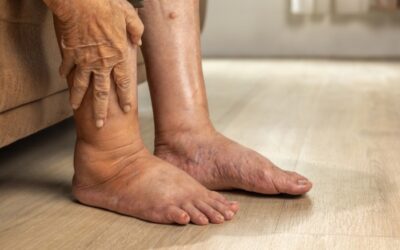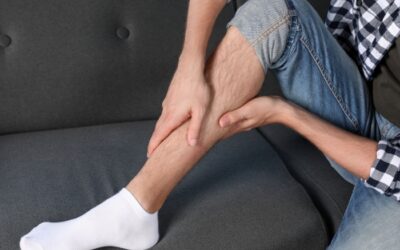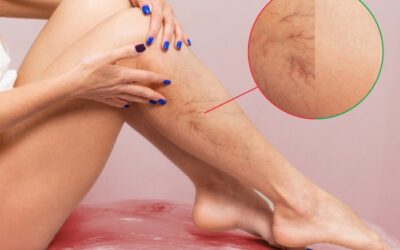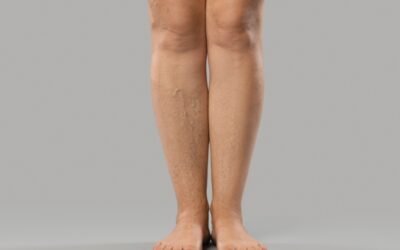Have you ever finished a long day and noticed that your legs feel heavy and weak, making it difficult to walk, stand, or climb stairs? Many people dismiss this sensation as simple fatigue, but persistent heaviness or weakness in the legs may indicate an underlying circulation, vein, or muscle issue. Understanding the causes, symptoms, and ways to relieve this discomfort can help improve leg health, prevent complications, and restore comfort.
This article will explore why legs feel heavy and weak, the risk factors that contribute to the problem, common symptoms, and practical strategies for relief.
Table of Contents
- What Does “Heavy and Weak Legs” Mean?
- Common Causes of Leg Heaviness and Weakness
- Risk Factors That Contribute
- Symptoms That May Accompany Weak Legs
- How Specialists Diagnose the Condition
- Ways to Manage & Relieve Heavy and Weak Legs
- When to Consult a Vein or Medical Specialist
- Final Thoughts
1. What Does “Heavy and Weak Legs” Mean?
A heavy and weak feeling in the legs is more than ordinary fatigue. It can present as a sensation of dragging, fatigue, or reduced strength in the lower extremities, sometimes accompanied by aching, tingling, or a feeling of instability. This condition can interfere with daily activities and may worsen as the day progresses, particularly after prolonged standing or walking.
Often, a heavy and weak feeling is associated with poor circulation or vein-related issues, such as chronic venous insufficiency. Vein valves that fail to function properly can lead to blood pooling in the legs, causing both heaviness and muscle fatigue. In other cases, nerve or muscle problems may also contribute to the sensation.
2. Common Causes of Leg Heaviness and Weakness
Several factors can contribute to why your legs feel heavy and weak. Chronic venous insufficiency (CVI) is one of the most common causes. When the valves in the leg veins are weakened or damaged, blood flow back to the heart is impaired, leading to blood pooling, increased vein pressure, and leg discomfort.
Varicose veins are another cause. These bulging, twisted veins are not just cosmetic concerns; they can hinder efficient blood flow, resulting in heaviness, fatigue, and aching. Poor circulation, including conditions like peripheral artery disease, can reduce oxygen delivery to muscles, causing weakness and fatigue.
Nerve or muscle issues, including sciatica, peripheral neuropathy, or muscle deconditioning, may also make legs feel heavy and weak. A sedentary lifestyle or obesity can further strain the veins and muscles, exacerbating the discomfort. Additionally, hormonal changes or pregnancy can impact vein health and circulation, leading to temporary or persistent leg weakness.
3. Risk Factors That Contribute
Certain risk factors increase the likelihood of experiencing heavy and weak legs. Age plays a significant role, as vein valves naturally weaken over time. Genetics and family history of vein problems can make some individuals more prone to chronic venous insufficiency and varicose veins. Women are particularly affected due to hormonal changes associated with pregnancy, menopause, or birth control, which can weaken vein walls.
A history of blood clots or deep vein thrombosis (DVT) can damage vein valves, increasing the risk of heaviness and weakness in the legs. Being overweight or obese puts additional pressure on the veins, while a sedentary lifestyle or jobs requiring long periods of standing or sitting can slow blood flow, contributing to fatigue. Understanding these risk factors can help identify the underlying cause and guide appropriate preventive measures.
4. Symptoms That May Accompany Weak Legs
Along with heaviness, legs may exhibit a variety of symptoms, including:
- Aching, cramping, or throbbing sensations
- Tingling, burning, or numbness in the lower extremities
- Swelling in the ankles or lower legs
- Visible varicose veins that may develop over time
- Skin changes such as discoloration, dryness, or ulcers in severe cases
Symptoms often worsen toward the end of the day or after prolonged periods of standing or sitting. Elevating the legs can temporarily relieve discomfort and reduce swelling. Paying attention to these symptoms can help determine whether a vein specialist or medical evaluation is necessary.
5. How Specialists Diagnose the Condition
A persistent heavy and weak feeling in the legs warrants a professional evaluation. Vein specialists typically begin with a comprehensive medical history and physical examination to understand the symptoms, lifestyle, and potential risk factors. Diagnostic tests such as Doppler or duplex ultrasound are used to evaluate blood flow, vein valve function, and the presence of venous reflux. In some cases, additional testing may be required to rule out nerve or muscle-related causes, especially if weakness or numbness is significant. Early diagnosis is critical to prevent the progression of vein problems, reduce the risk of complications such as ulcers or skin changes, and provide guidance for effective treatment.
6. Ways to Manage & Relieve Heavy and Weak Legs
Managing heavy and weak legs often involves a combination of lifestyle modifications and medical interventions. Regular physical activity, including walking, stretching, and targeted leg exercises, can improve circulation and strengthen the muscles supporting vein function. Avoiding prolonged periods of sitting or standing and taking frequent breaks to move helps reduce pooling of blood in the lower extremities. Elevating the legs when resting can also relieve pressure and minimize swelling.
Compression therapy, such as wearing properly fitted compression stockings, is effective in supporting vein function and improving blood flow. Proper hydration, a balanced diet, and maintaining a healthy weight also contribute to better circulation and reduced leg fatigue. For more severe vein-related issues, minimally invasive procedures like endovenous ablation or sclerotherapy may be recommended by a vein specialist. Physical therapy may also be suggested for muscle weakness or nerve-related causes.
7. When to Consult a Vein or Medical Specialist
If you experience persistent heaviness or weakness in your legs, it is important to seek professional evaluation. Symptoms such as pain, swelling, visible varicose veins, skin changes, or reduced mobility should not be ignored. Consulting a vein specialist or vascular physician at Premier Vein & Vascular Center ensures a proper diagnosis and access to treatments that can relieve discomfort and improve leg health. Early intervention can prevent complications and enhance quality of life.
8. Final Thoughts
A heavy and weak feeling in the legs can signal underlying vein, circulation, or muscle issues. Identifying the cause, addressing risk factors, and implementing lifestyle changes can significantly improve comfort and mobility. Consulting a vein specialist when symptoms persist ensures proper evaluation, timely treatment, and long-term relief.
If you’ve been struggling with a persistent heavy and weak feeling in your legs, reach out to Premier Vein & Vascular Center today for a comprehensive evaluation. Our expert team can assess your vein and vascular health, provide personalized solutions, and help you regain strength, comfort, and confidence in your legs.
Disclaimer: This article is for informational purposes only and does not constitute medical advice. Please consult a qualified vein specialist at Premier Vein & Vascular Center for personalized evaluation and treatment.




